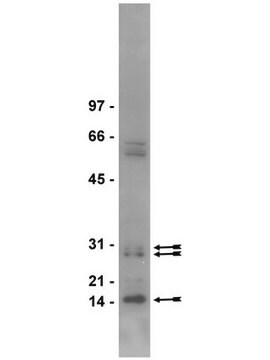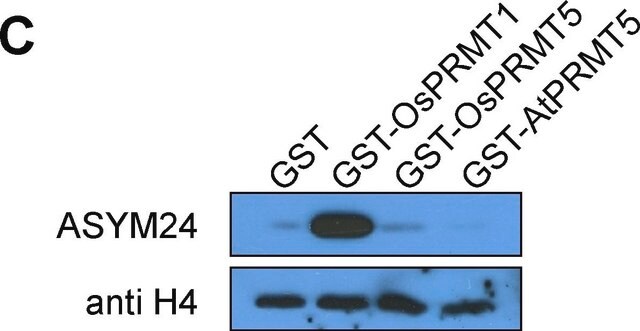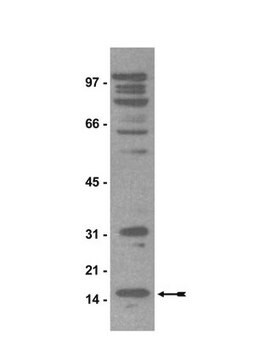09-814
Anti-dimethyl-Arginine Antibody, asymmetric (ASYM25)
serum, from rabbit
Sinónimos:
dimethyl-arginine, asymmetric
About This Item
Productos recomendados
biological source
rabbit
Quality Level
antibody form
serum
antibody product type
primary antibodies
clone
polyclonal
species reactivity
mouse
species reactivity (predicted by homology)
rat (based on 100% sequence homology), human (based on 100% sequence homology)
technique(s)
western blot: suitable
shipped in
wet ice
target post-translational modification
unmodified
General description
Specificity
Immunogen
Application
Quality
Western Blot Analysis: 1:1,000 dilution of this antibody detected dimethyl-Arginine on 10 µg of PRMT1 treated and untreated MEF cell lysates.
Target description
Analysis Note
PRMT1 treated and untreated MEF cell lysates
¿No encuentra el producto adecuado?
Pruebe nuestro Herramienta de selección de productos.
Storage Class
10 - Combustible liquids
wgk_germany
WGK 1
Certificados de análisis (COA)
Busque Certificados de análisis (COA) introduciendo el número de lote del producto. Los números de lote se encuentran en la etiqueta del producto después de las palabras «Lot» o «Batch»
¿Ya tiene este producto?
Encuentre la documentación para los productos que ha comprado recientemente en la Biblioteca de documentos.
Nuestro equipo de científicos tiene experiencia en todas las áreas de investigación: Ciencias de la vida, Ciencia de los materiales, Síntesis química, Cromatografía, Analítica y muchas otras.
Póngase en contacto con el Servicio técnico








